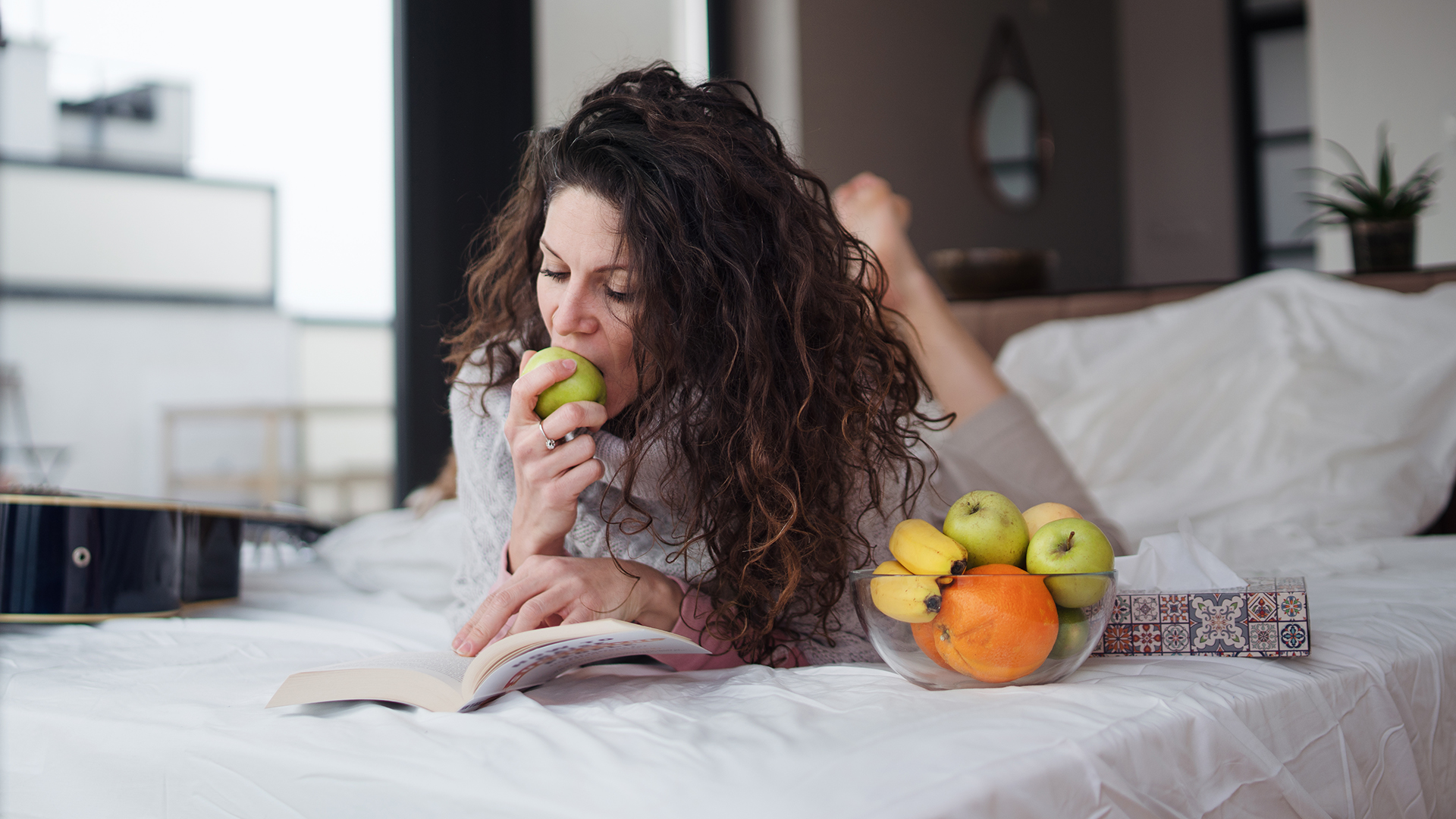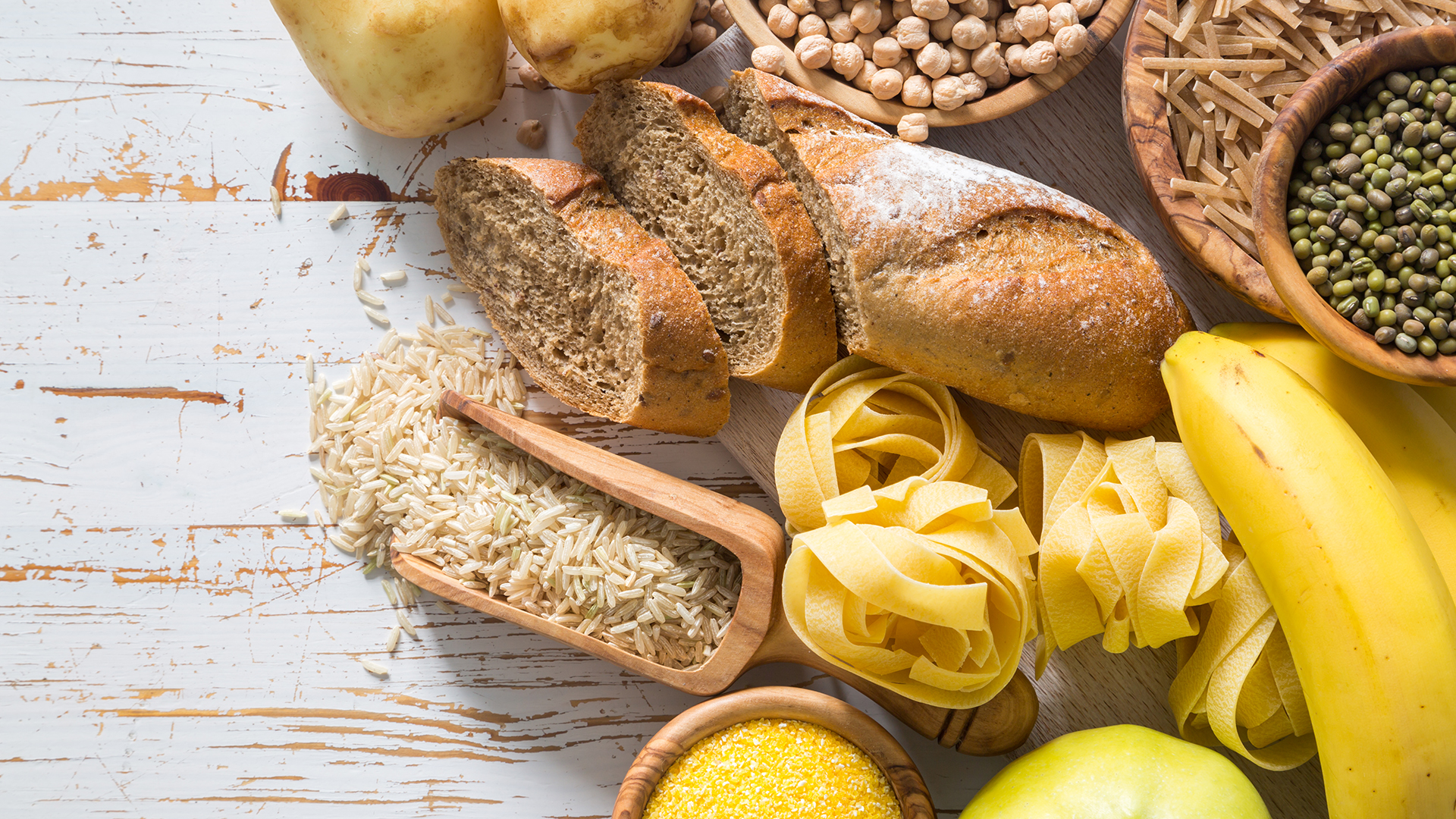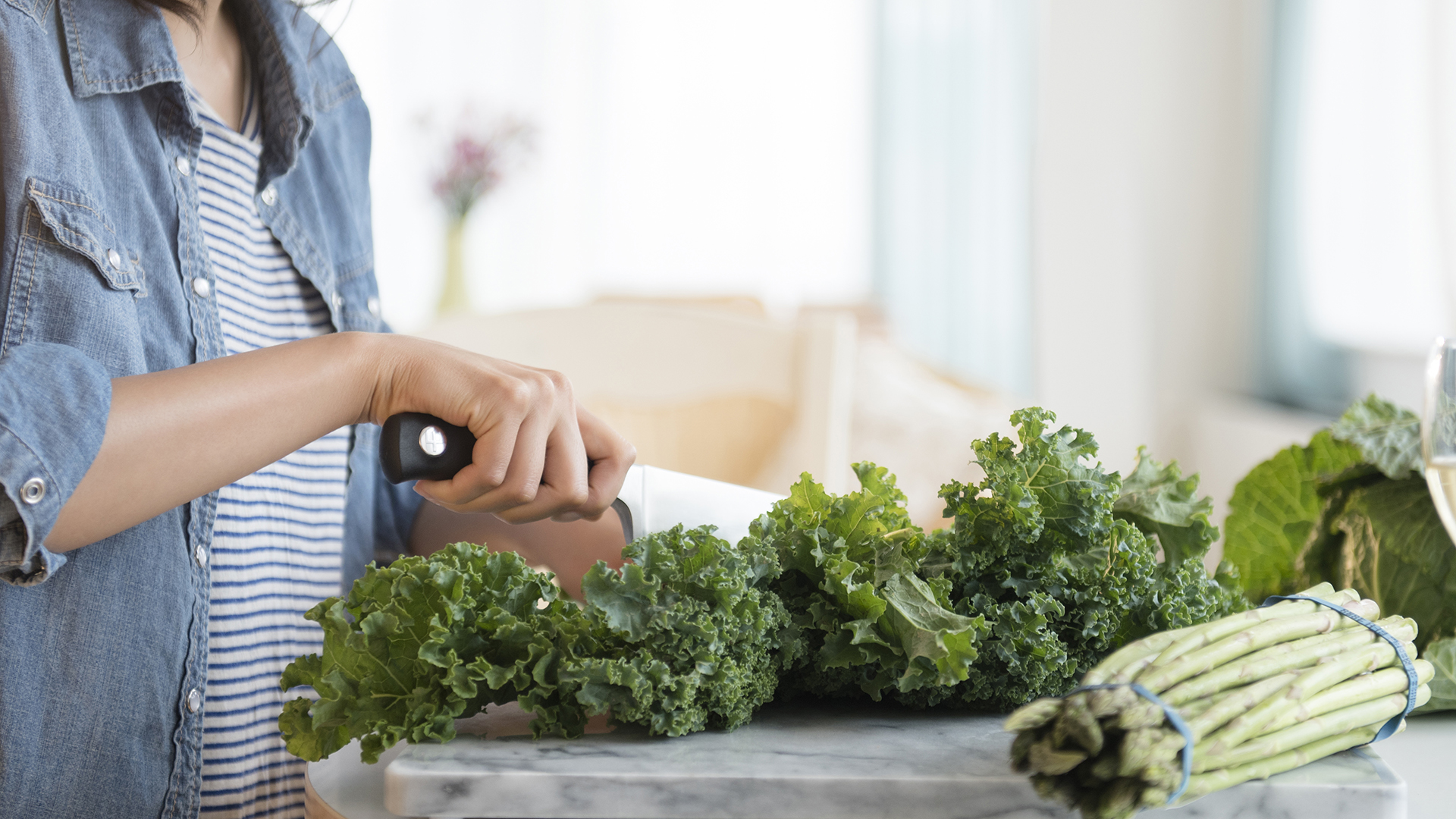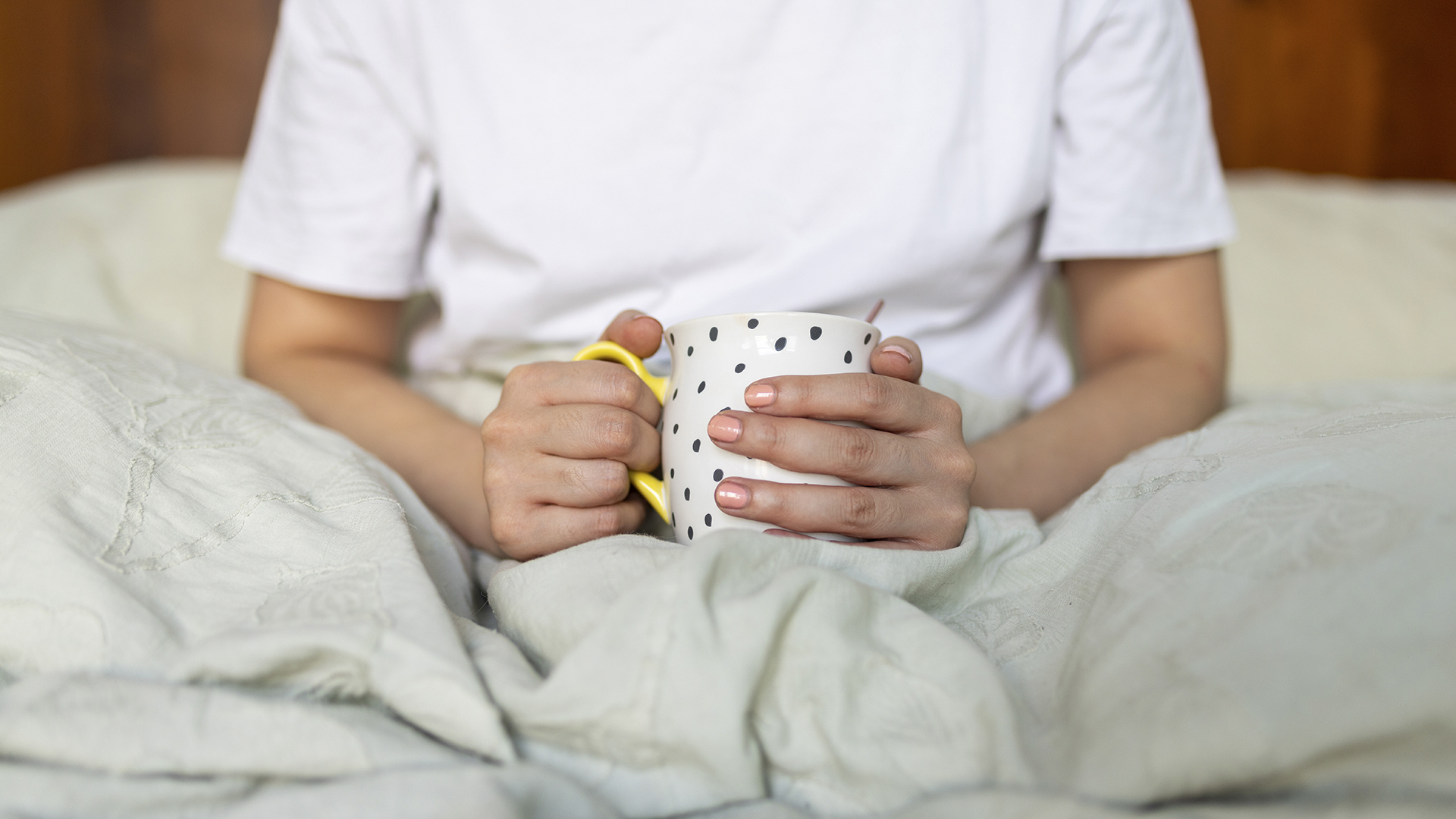Is eating better your New Year’s resolution? It can help your sleep as well – we asked a nutritional therapist
Plus a few small diet changes you can make for better sleep (and healthier living)

We've all been sucked in by a superfood promise from time to time – cashews help you sleep better, matcha increases your brain power, chia seeds will make you beautiful... But although these quick fixes can seem appealing, prioritizing an overall healthier lifestyle is always the better option. And it turns out, it's the right choice for your sleep as well.
At least, that's according to Anna Mapson, registered nutritional therapist and founder of Goodness Me Nutrition. Speaking in partnership with Mattress Online, she emphasizes that we shouldn't fall for easy solutions when choosing food for better sleep. “It's really important that people consider their overall diet," says Anna. "Including or excluding one food isn't going to make any difference to how you sleep, but getting your energy intake right, and ensuring you're eating a good, balanced ratio of protein, fiber, and fats will put you in a good place for better sleep.”
So, the happy news is that the occasional chocolate bar won't ruin your sleep. However, much as even the best mattress can't guarantee you eight hours, a handful of pumpkin seeds won't get you dreaming – but they can be part of an overall healthier setup.
"When we're more healthy overall, we will tend to sleep better," explains Anna. And better sleep makes for better general wellbeing. If you're finding a diet overhaul a little intimidating, we have some tips on how to get started choosing foods for better sleep.
Don’t avoid carbs – just switch to complex ones

Carbohydrates are a bit of a dirty word in many diets, but if you want to maintain a healthy sleep schedule, don't cut this food group out. Research links carbohydrates to the amino acid tryptophan, which aids in the production of the sleep-hormone melatonin.
However, it's important to consume the right kind of carbs. Prioritize eating complex carbohydrates, such as whole grains – and not just for your sleep. “Complex carbs help to protect and improve our health in lots of ways,” explains Anna. “They help you to feel fuller for longer as they contain more fiber…the higher fiber content helps feed our gut microbes which interact with our immune system to keep us healthy. And a higher fiber diet from whole grains is strongly associated with reduced risk of heart disease and strokes.”
While limiting consumption of simple carbs can be beneficial, make sure you're still consuming enough calories for your body and lifestyle. "If you're not eating enough, it may impact your sleep quality,” says Anna.
Sign up for breaking news, reviews, opinion, top tech deals, and more.
Magnesium aids sleep, but eat it during the day

Magnesium rich-foods are commonly recommended for those struggling to sleep, and studies have shown that magnesium is an important mineral for achieving healthy rest. Foods such as pumpkin seeds, sunflower seeds, and hemp seeds all contain magnesium, making them a good snack to enjoy before bed.
Just make sure a sprinkle of seeds at night isn't your only source of magnesium, as Anna warns that it won’t be enough to get you drifting off. “Seeds may be helpful as part of a bedtime snack if you're hungry, but they aren't going to put you to sleep, unfortunately.” Instead, she emphasizes the importance of eating magnesium-rich foods – such as leafy green vegetables – throughout the day.
Monitor your liquid consumption

While it is important to maintain good hydration levels, avoid simply chugging a few liters of water before bed, especially if you're hoping to sleep well. For both your sleep health and your overall wellbeing, it's better to stagger your liquid consumption throughout the day. Lots of things can disrupt our rest – from blue light to a full moon – but few are more frustrating than waking up for regular trips to the toilet.
“Avoid drinking too much before bed,” warns Anna, “as you may need to get up to use the bathroom. If you always need a wee at night aim to finish your liquid intake around 1-2 hours before bed.”
And if you do enjoy a drink as part of your bedtime routine, steer clear of anything that might keep you awake (like coffee) or prevent you from achieving a restorative sleep (like alcohol). Anna recommends soothing drinks such as chamomile tea or decaf tea with valerian or hops extract.

Anna Mapson is a registered nutritional therapist and the owner of Goodness Me Nutrition. After becoming a full member of BANT (The British Association of Nutrition & Lifestyle Medicine) she decided to focus on gut health, and was inspired to start Goodness Me Nutrition to help individuals find a diet that works for their own unique body.

Ruth is TechRadar’s Sleep Writer. She’s here to help you find the perfect sleep setup for your budget and personal preferences. As well as keeping a keen eye on everything that’s going on in the world of mattresses, she regularly speaks to experts to help you learn how to improve your sleep habits, whether that’s by debunking sleep myths or explaining the science behind it all. Prior to joining the TechRadar team, she wrote features and product guides for new parents hoping to get a decent night's sleep, as well as writing for a variety of online spaces.